|
|
|
Glas New Russian Writing

|
War&Peace: a compelling portrait of post-post-perestroika Russia. War&Peace brings together 12 stories by new generation of Russian writers. These 'state of the nation' stories imaginatively explore current Russian definitions of war and peace. WAR: controversial stories about life in the modern Russian army where the continuing war in the Caucasus has bred discontent and corruption. PEACE: stories from the frontline of contemporary life for women in Russia — from relationships and violence to aging and the generation gap. |
|
«Since 2002, readers all over the world have been enjoying and learning from Michele A. Berdy's column «The Word's Worth» in The Moscow limes. In this quirky, opinionated, sometimes hilarious yet always thoughtful and authoritative guide, Berdy looks at Russia's changing culture, social scene and everyday life through language and the art of translation. She discusses colloquialisms and youth slang, the language of politics, the workplace, and the often comical struggle of expats to feel at home in a foreign idiom and culture. The Russian Word's Worth is essential reading for students and teachers of Russian, translators, Russia-watchers, expats, and anyone who wants to understand Russia today.» |

|
Excerpts from the novels shortlisted for the third Booker Russian Novel Prize read like complete stories and are followed by summaries of the novels and authors' notes. Included are: Bulat Okudzhava (Winner), The Show is Over; Peter Aleshkovsky, The Life of Ferret; Yuri Buida, Don Domino; Alexei Slapovsky, The First Second Coming; Mikhail Levitin, Total Impropriety; Igor Dolinyak, The Third World. Also a story by Mark Kharitonov, the first winner of the Russian Booker, which is a sequel to his prize-winning novel. Others include Asar Eppel whose style and themes are reminiscent of Babel and Sholem Aleichem, and Nikolai Klimontovich, a Soviet Casanova, telling his naughty stories where sex and politics are intertwined. |

|
An avant-garde novel which mirrors the chaos that now infuses Russian life as its people struggle to navigate the transition from communism to democracy. Skunk, so nicknamed because he grows up small and stunted, feels restless, out of place, and nearly hopeless, but everywhere finds nothing but corruption and dishonesty. |

|
This frank and detailed memoir of Sergey Esenin is indispensable for anyone interested in the literary avant-garde of the twenties. |

|
«Sea Stories» depicts the realities of life inside the army. Alexander Pokrovsky's cycle of satirical stories about the trials and trivialities of life on a nuclear submarine are both funny and frightening. Alexander Terekhov relates his traumatic first-hand experiences in the army without losing sight of man's better nature.» |
|
The living voices of eleven leading Russian authors. Kristina Rotkirch's book presents the reader with an overview of contemporary Russian literature: Boris Akunin, Yuri Mamleev, Yevgeni Grishkovets, Eduard Limonov, Victor Pelevin, Lyudmila Petrushevskaya, Nina Sadur, Vladimir Sorokin, Lyudmila Ulitskaya, Ivan Shishkin, and Tatyana Tolstaya. The contrast in styles, life experiences, and outlooks lends it a width of perspective that few books can offer. |
|
«The picture resembles a Chagall painting.... Or perhaps this anti-autobiography is meant to satirize the old Russian question 'Who is to blame?' with the Jewish answer: Me.» — «The Times Literary Supplement». In the title novella the hero, after a marital infidelity, takes his family to Paris hoping to win his beautiful wife's forgiveness.» |
|
«Boris Slutsky has now emerged as one of Russia's great twentieth-century poets. Unlike his contemporary Solzhenitsyn, this once ardent Stalinist remained inside the Soviet literary establishment, and kept his unacceptable work to himself. His best poetry and prose were published only after his death. In «Things That Happened» the innermost thoughts of this clear-eyed tragedian are revealed as he enthused during the dynamism and terror of the 1930's, fought heroically in Russia, Romania, and Yugoslavia during the Second World War, and then became an increasingly sceptical witness to the de-stalinizations and re-stalinizations that preceded the terminal senility of the Soviet system under Brezhnev. Gerald Smith, Professor of Russian in the University of Oxford, supplies a detailed running commentary to a testament that appears for the first time here in English.» |

|
«As the narrative delivers glimpses of human life in bite-size chunks, [Asar] Eppel's extraordinary compassion and humor is revealed, combined with his Jewish sense of history and merciless insight into people's true natures» Good Book Guide «Unsentimental but humane, his spare realism penetrates daily life» The New York Times Book Review» |

|
Dramatic history of several generations of an upper-class family during the First World War and the Civil War in Russia |
|
These literary pieces by one of Russia's foremost essayists reflect the author's bi-culturalism – Russian and American civilizations are compared in their various manifestations. Genis is a shrewd and observant critic. His essays are dynamic, informative, and a joy to read. |

|
Rubinstein succeeds in arranging his fragmented text in such a clever way that they invariably trigger off a series of associations, even in the reader who fails to catch all the allusions weaved in by the author. Thus his texts begin to speak to any reader anywhere and in any language, but they speak in a different way. |
|
Selin belongs to that rare Chekhovian type of writer who tells a story not straightforwardly but through a series of carefully chosen and cleverly arranged vivid details. Perhaps Selin has even more in common with Gogol – he demonstrates the same kind of healthy humor and rich imagination. Some of his stories resemble video-clips and are just as visual. |
|
Owner of the Grass is about a disaster befalling a man in love with his own mirror reflection. Moving from the real to the surreal, she invites us to come with her into these two realities, which eventually turn out to be one, a place where the magic and the mundane merge. |

|
«Galina's ingenuity in weaving together numerous mythological allusions and literary parallels is astounding. Apart from the Hellenic, Jewish and Arabic myths, she introduces references to popular legends and modern superstitions.»—The Moscow Times Iramifications has all the cheeky comedy of Ilf and Petrov with a touch of Gogolian barminess.» |

|
GLAS' third collection of top women writers includes some internationally known names (Ludmila Petrushevskaya, Svetlana Alexiyevich, Olga Slavnikova, Ludmila Ulitskaya) as well as some other noted women authors appearing for the first time in English (Nina Gorlanova, Margarita Sharapova, Natalia Smirnova, Anastasia Gosteva). |

|
Russia is a country rich in talent which as often gone unrecognized or been actively suppressed and its literary achievements have frequently been inaccessible to non-Russians. GLAS has been designed to bridge the cultural gap between East and West by providing translations which allow the best modern Russian writing to speak directly to the Western reader. The sources at our disposal are vast new works by young talents and established writers, works well-known to the readers of samizdat but now freely available for the first time, works that have never been offered for publication before, works that have emerged from decades of imposed obscurity... The Russians write a lot. And they read a lot. In these turbulent times the Russian literature scene is changing rapidly, and every new contribution is avidly consumed. Our intention is to involve readers in this fascinating process. GLAS is produced through the efforts of a team of experienced writers, critics, editors and translators. Our greatest hope is that you will enjoy it. |

|
This issue of Glas has a subtitle Soviet Grotesque and our subsequent numbers will follow a similar pattern, dealing with such themes as The Woman's View and The Jews in Russia. We hope this approach will increase our reader's enjoyment by offering them an integrated reading experience which gives us a clear insight into some aspect of life in Russia. The sense of the grotesque has a long and distinctive history in Russian literature. It can be argued that the Soviet period has provided particularly fertile ground for its development--many Russians would certainly think so. Grotesque literature has flourished here--without official acknowledgement or encouragement, of course--but only now can it be openly published and freely read. The pieces offered here clearly demonstrate the grotesque's ability to manifest itself in an unlimited range of style and form--the following pages offer lapidary jargon sketches, urbane self-referential prose, frantic stream of consciousness, surreal naturalistic detail and realistic narrative with lyrical interludes. In every case we feel the writer has something to say to the Western reader. |

|
Just as love is very much part of any human life, for the soviet citizen it was often accompanied by another powerful emotion--fear. For various reasons, as this collection shows, the two have always gone hand in hand in Russia. Here love is seen from various angles: the imprisonment of the first Soviet president's wife under Stalin (Razgon), homosexual love punishable by Soviet law (Kharitonov), unrequited love driving man to disaster (Makanin), adolescent longing for love and fear of rejection (Gareyev), an old granny's love for the shopping bag which is her provider (Gorenstein), love as adventure and misunderstanding (Zinik), anti-love among the dregs of society (Miloslavsky), trans-sexuals' surreal experiences (Pelevin), and love in that typically Soviet institution, the communal flat. Each person models his or her own world to live in, alone with oneself. Only writing gives us the chance to discover these innumerable unique worlds-from cancer wards to prison camps, those hells on Earth to which we are drawn by a strange fascination. Literature has been written for centuries, yet each generation's authors still manage to find new angles of vision and new literary idioms. This has been aptly demonstrated by the recent awarding of the first Russian Booker Prize. Two short listed authors-Makanin and Gorenstein-have been included in this issue, while Vladimir Sorokin, another short listed author, was published in the second issue of Glas. The closing interview with Alla Latynina, the first chairman of the Russian Booker Prize jury, gives a reflection into Russia's literary scene today. Despite Russia's present problems, the literary process continues. |
|